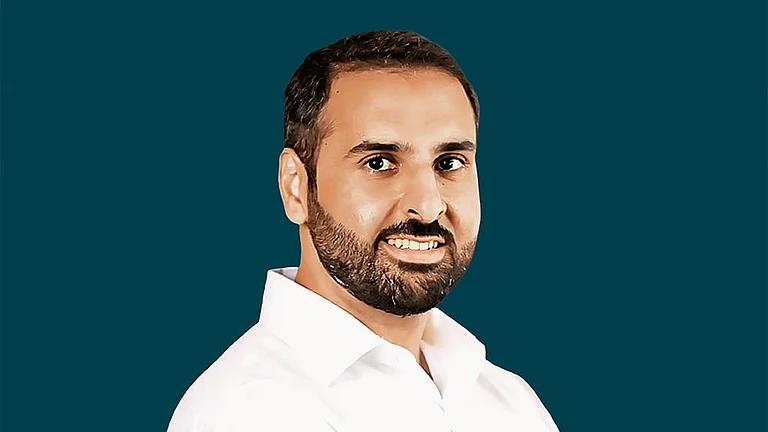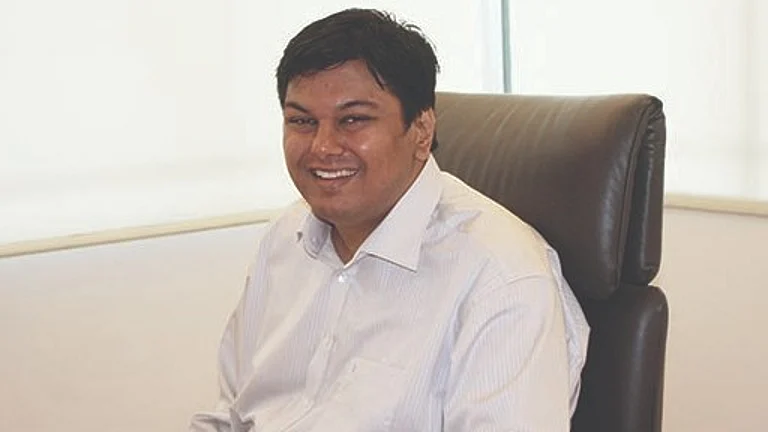
Tata Trusts’ trustees reportedly clashed on Thursday over the reappointment of a nominee to the Tata Sons board.
Vijay Singh, former Defence Secretary, resigned after the meeting where his reappointment was expected.
A majority of trustees, including Mehli Mistry, Pramit Jhaveri, Jehangir Jehangir, and Darius Khambata, opposed his continuation.
Tensions ran high at Bombay House on Thursday as trustees of the powerful Tata Trusts reportedly clashed over the appointment of a nominee to the Tata Sons board. The group of charities controls India’s largest business conglomerate, worth over ₹27 lakh crore, through its nominees on the board.
One of these nominees, Vijay Singh, former Defence Secretary of India, resigned on Thursday, according to the Economic Times (ET). His reappointment was expected to be finalised during the meeting.
However, a majority of trustees, including Mehli Mistry, Pramit Jhaveri, Jehangir Jehangir, and Darius Khambata, opposed the move, the newspaper reported.
In 2024, following the death of Ratan Tata, trustees decided that nominee directors on the Tata Sons board must be reappointed annually once they turn 75. Singh, who has been in the role since 2012 and a trustee of Tata Trusts since 2018, is 77 and was due for reappointment at this meeting.
But with four of the seven trustees opposing his reinstatement, Singh tendered his resignation. Noel Tata and Venu Srinivasan, also nominee directors on the Tata Sons board, were present at the meeting.
Meanwhile, the group of four proposed nominating Mehli Mistry as their representative on the Tata Sons board. Noel Tata and Venu Srinivasan resisted the move, stressing that such appointments must follow a transparent process consistent with Tata’s values and institutional reputation, a company official told ET.
Why the Trust Nominee Matters
The authority to nominate directors to the Tata Sons board is a key instrument of influence for the Tata Trusts. Under Article 121 of the company’s Articles of Association, these nominee directors have the power to block certain major board decisions, effectively giving them veto rights.
Insiders quoted in the report described the attempt to replace one trustee with another as an effort by some members to consolidate control over the Trusts and, by extension, Tata Sons. The current standoff, three trustees versus four, has created a deadlock that requires resolution. For now, the Tata Sons board continues with two Trust nominees until a compromise is reached.
One option under discussion is engaging a professional search firm to prepare a shortlist of candidates, while trustees may also volunteer themselves for consideration.
At the heart of the rift is how information from Tata Sons board meetings is shared. The two major Trusts, Sir Dorabji Tata Trust and Sir Ratan Tata Trust, together hold about 66% of Tata Sons’ equity, giving them a controlling stake. Trustees who are not on the Tata Sons board have complained that updates from nominee directors are limited and sometimes opaque. This concern has grown in recent months, with at least one trustee alleging that the flow of information has been deliberately restricted, the report noted.
Nominee directors, however, maintain that they are required to share only significant updates, as their fiduciary duty is to Tata Sons as a whole. They also emphasise that sensitive business matters must be handled with care, especially given that many Tata Sons subsidiaries are listed companies subject to strict market regulations.
In addition to filling the Trusts’ pending nominee position, Tata Sons also faces vacancies following the exits of Ralph Speth, Ajay Piramal, and Leo Puri from its board. It has been reported that Speth’s place may go to Tata Steel’s TV Narendran.
As of now, the Tata Sons board consists of, N. Chandrasekaran, Executive Chairman, Venu Srinivasan, Noel N. Tata, Harish Manwani, Anita Marangoly George, Bhaskar Bhat and Executive Director Saurabh Agrawal.

































